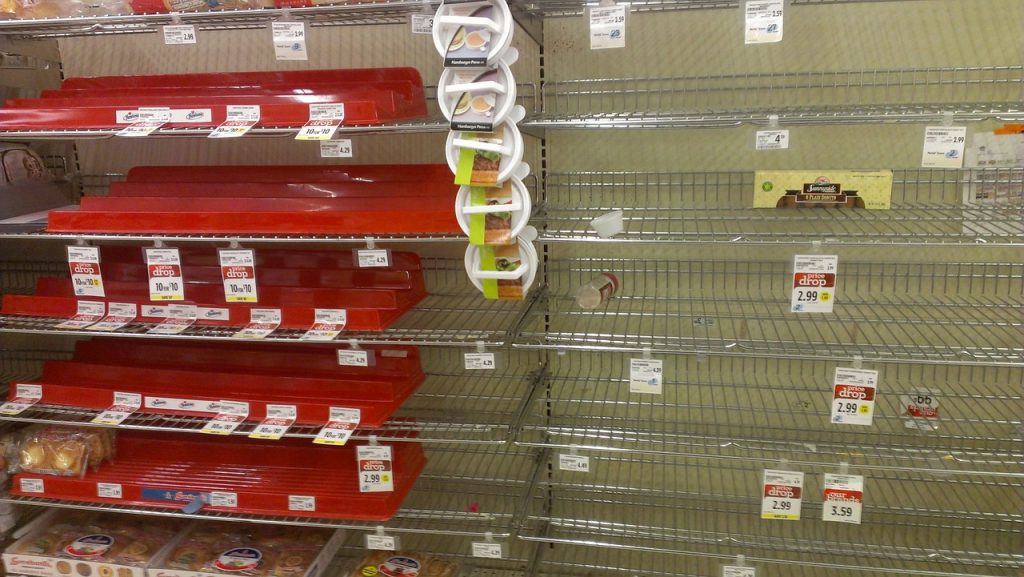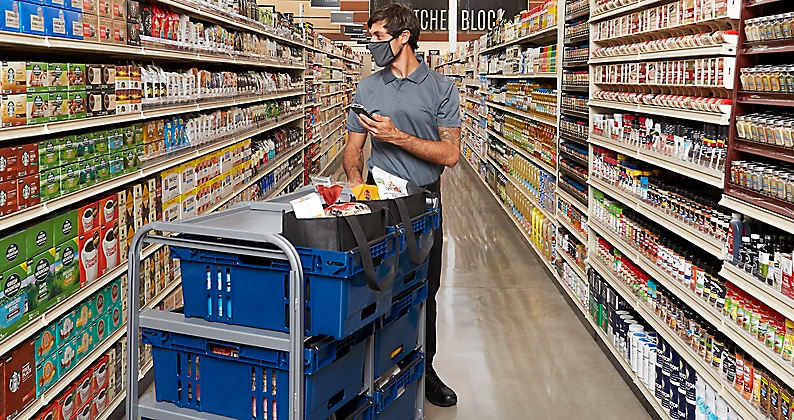Grocery Store Shelves Are Emptier Than Ever
Grocery stores are struggling more than ever to keep their workers healthy and shelves stocked.
This article is more than 2 years old

As the sharp incline of Omicron caused nationwide sickness, more and more employees have called out of work. A deficit in grocery store workers means fewer shelves stocked and more customer congestion. Stores worry as food trucks arrive late with deliveries and shelves begin to deplete irrevocably.
The decline of grocery store sales puts investors in a difficult position. Many investors are bracing for inevitable decreases in stock shares. Emptier shelves and a lack of adequate labor mean inflated food and transport prices.
Markets around America already feel the effects of the labor shortage in their stock prices. Albertsons, a grocery store chain with headquarters in Idaho, saw a decrease in its stock with a 9.75% decline. Walmart‘s shares dropped 1%, while Kroger’s shares dropped even more by 3%.
Grocery stores, retailers, and manufacturing companies struggle to keep their workers safe while COVID cases soar. The U.S. daily COVID average is now peaking in the millions thanks to Omicron’s unprecedented infectiousness. Hospitalizations are also at an all-time high, with more than 144,000 people hospitalized last Sunday.
Hand sanitizer and social distancing are unfortunately no longer viable solutions for essential workers. Grocery stores are experiencing the pressure of this variant firsthand, with more businesses reporting employees leaving work due to positive covid tests. Workers are also advised to quarantine if they come into close contact with an infected individual. This leaves employers without backup options and employees concerned about their financial security.
“Out-of-stock” is a recurring phrase in grocery stores this winter. CEO of Albertsons, Vivek Sankaran, stated that stocking shortages had been ongoing for months before Omicron’s surge. With fewer employees, he expects “more supply challenges over the next four weeks to six weeks.” The CDC foresees the rise of Omicron to continue, making empty shelves an unending issue.

Grocery stores aren’t the only businesses experiencing worker shortages. Airline industries have also been hit hard, canceling flights due to insufficient staff. United Airlines reported 3,000 workers called out sick this week, which is 4% of the company’s workforce. As a result, most airlines are hiking up hazard pay for their pilots to try and compensate for the precarious conditions.
However, markets around the nation often have less leeway to give employees adequate hazard pay. Small grocery stores especially enduring a decline in their stock are selling less of their product. Raising food prices or hiking up staff wages aren’t often available options for low-margin businesses. With no incoming stimulus for small businesses, Omicron threatens the existence of employees and their staff nationwide.
Unlike small markets, inflating prices is a more viable solution for large-scale grocery stores like Whole Foods and Kroger. Albertsons stated that the prices for ingredients and other products rose during the past couple of waves of COVID. While this puts strain on the consumers, bigger stores can use this profit to fund their employee’s hazard pay. Albertsons is one of the larger grocery chains that raised employee wages during this catastrophic period.
Grocery store shelves having less to offer customers is a problem with few solutions. As more and more employees test positive, isles will continue to be empty, and stores will continue to overcrowd. All we can do as a nation is follow the CDC’s masking guidelines and hope that’ll flatten Omicron’s insidious rise.



